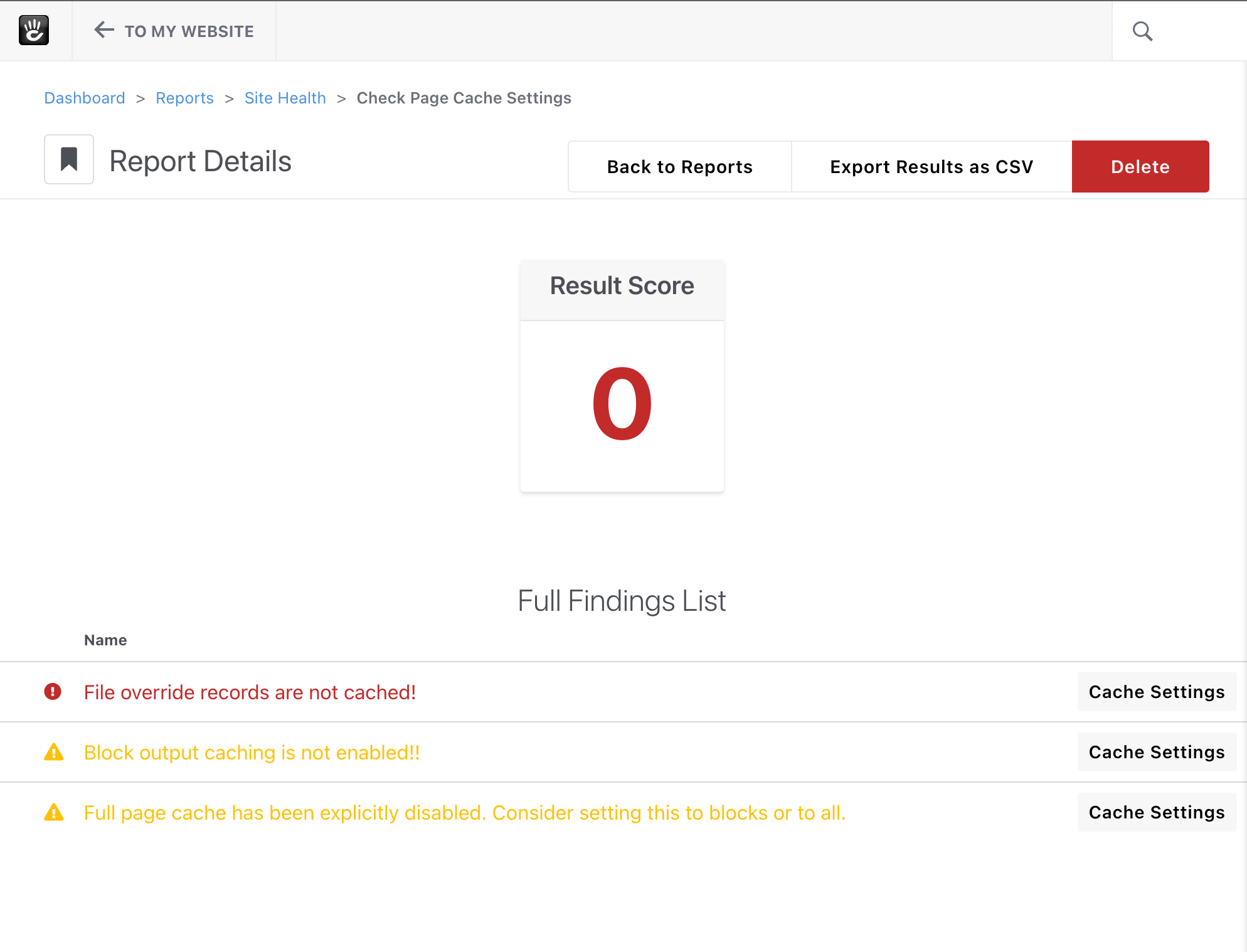
Caching is a key component of website performance optimization. It involves storing frequently accessed data in a temporary storage area (cache) for quicker retrieval. Caching helps reduce server load and improves website speed, which can have a significant impact on user experience and SEO. If caching is not aggressive enough, it can cause slow page load times and increased server load.
Concrete CMS provides a Check Cache Page Settings report that performs various tests to determine whether the caching system is configured properly for a production environment. This report checks whether cache settings are configured appropriately. If any issues are identified, recommendations are provided to address them.
On a default Concrete installation, running the Check Cache Page Settings report will return the following results of items that will need updating to make the site production-ready:
- Determining if file override records are not cached. This can be changed on the Caching Settings page.
- Block output caching is not enabled - Enabling this will help speed up your site rendering. This can be changed on the Caching Settings page.
- Full page cache has been explicitly disabled. Consider setting this to "if blocks allow it" or to "in all cases". Note: This is one of the most important cache settings for making sure your site is as fast as possible. This can be changed on the Caching Settings page.
The caching report allows website owners and developers to ensure that their Concrete site is performing optimally in the production environment, delivering a better user experience, and improving SEO.
Export CSV
You can export these results in a Comma Separated Value (CSV) spreadsheet for your records by clicking the "Export Results as CSV" Button.